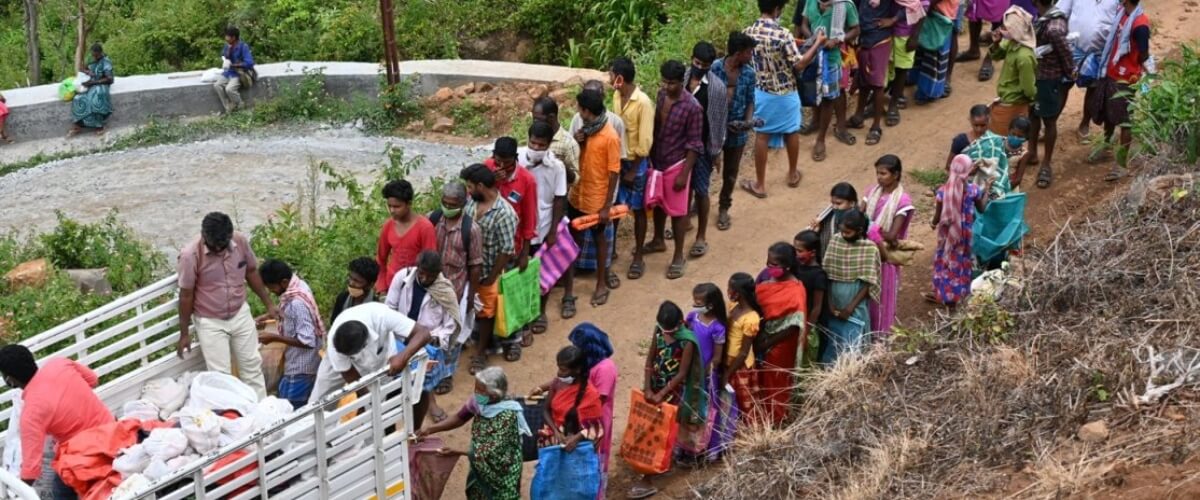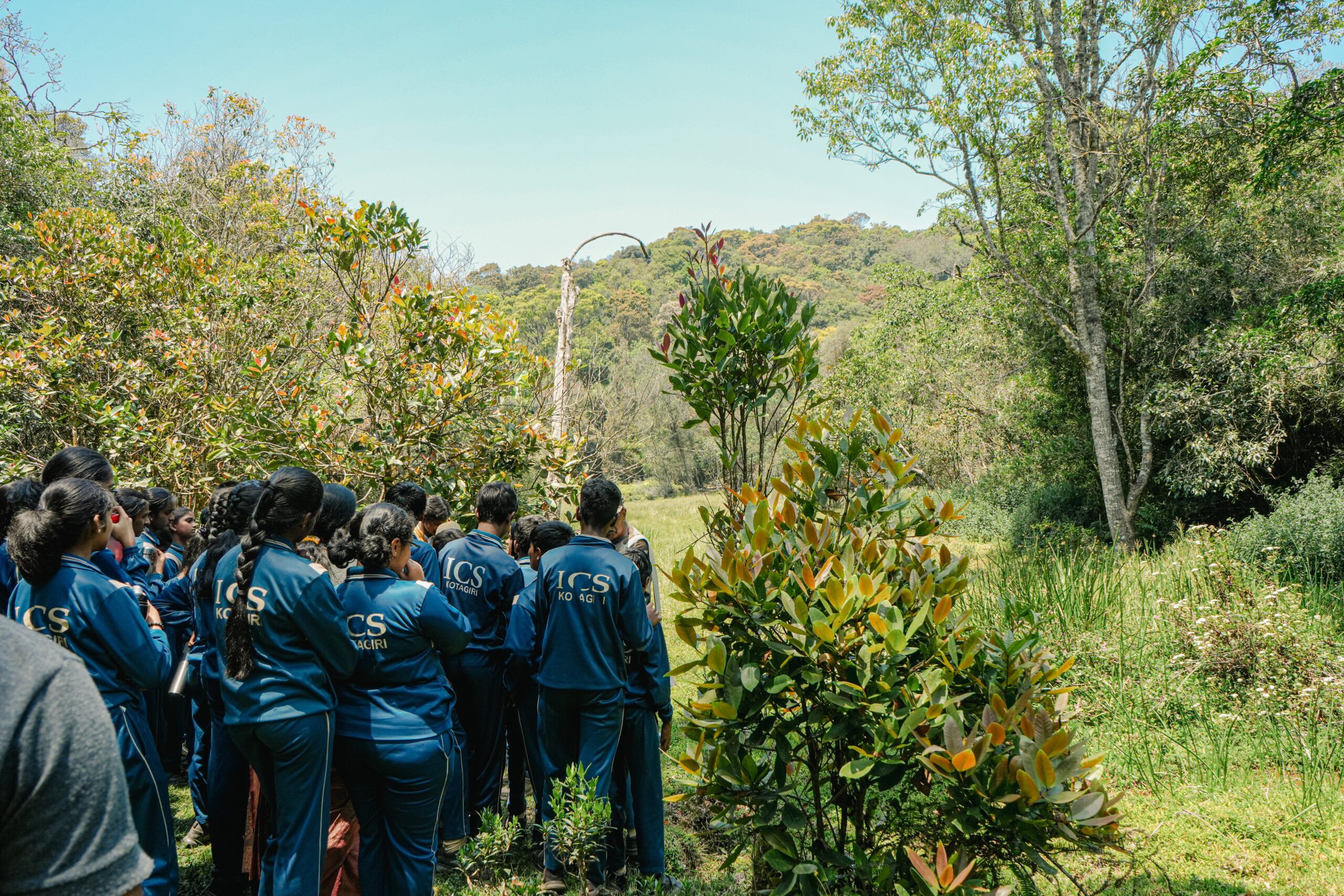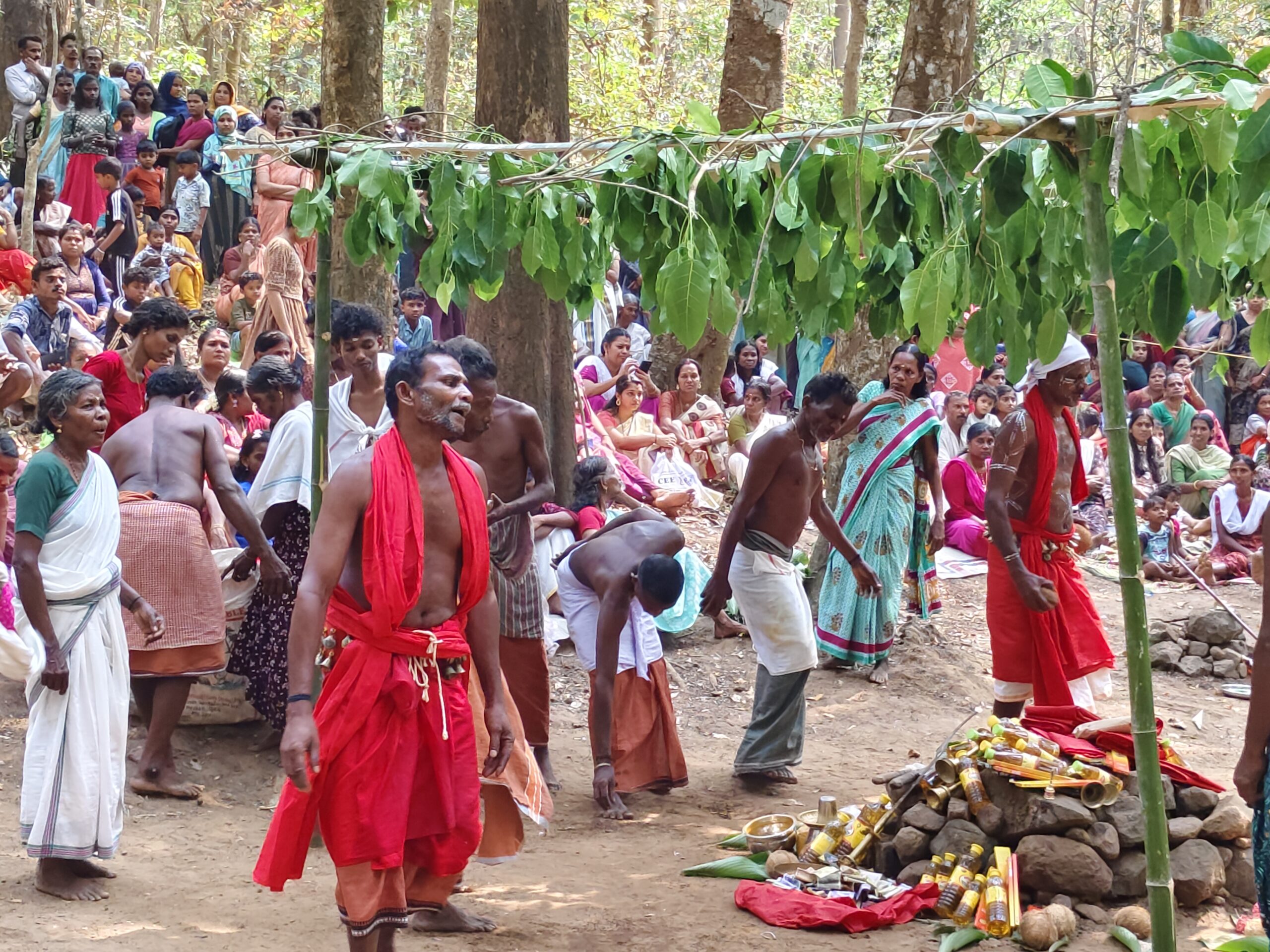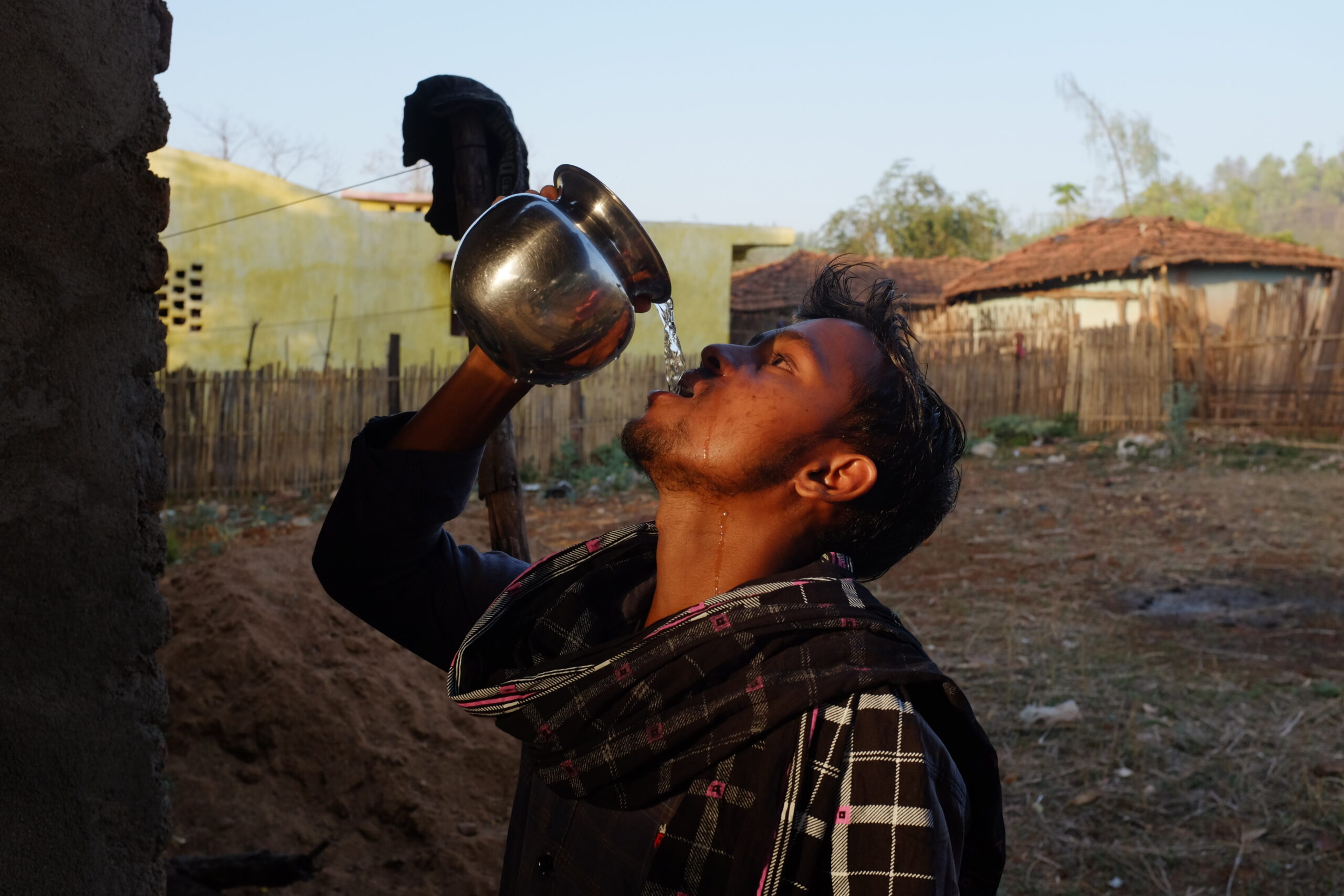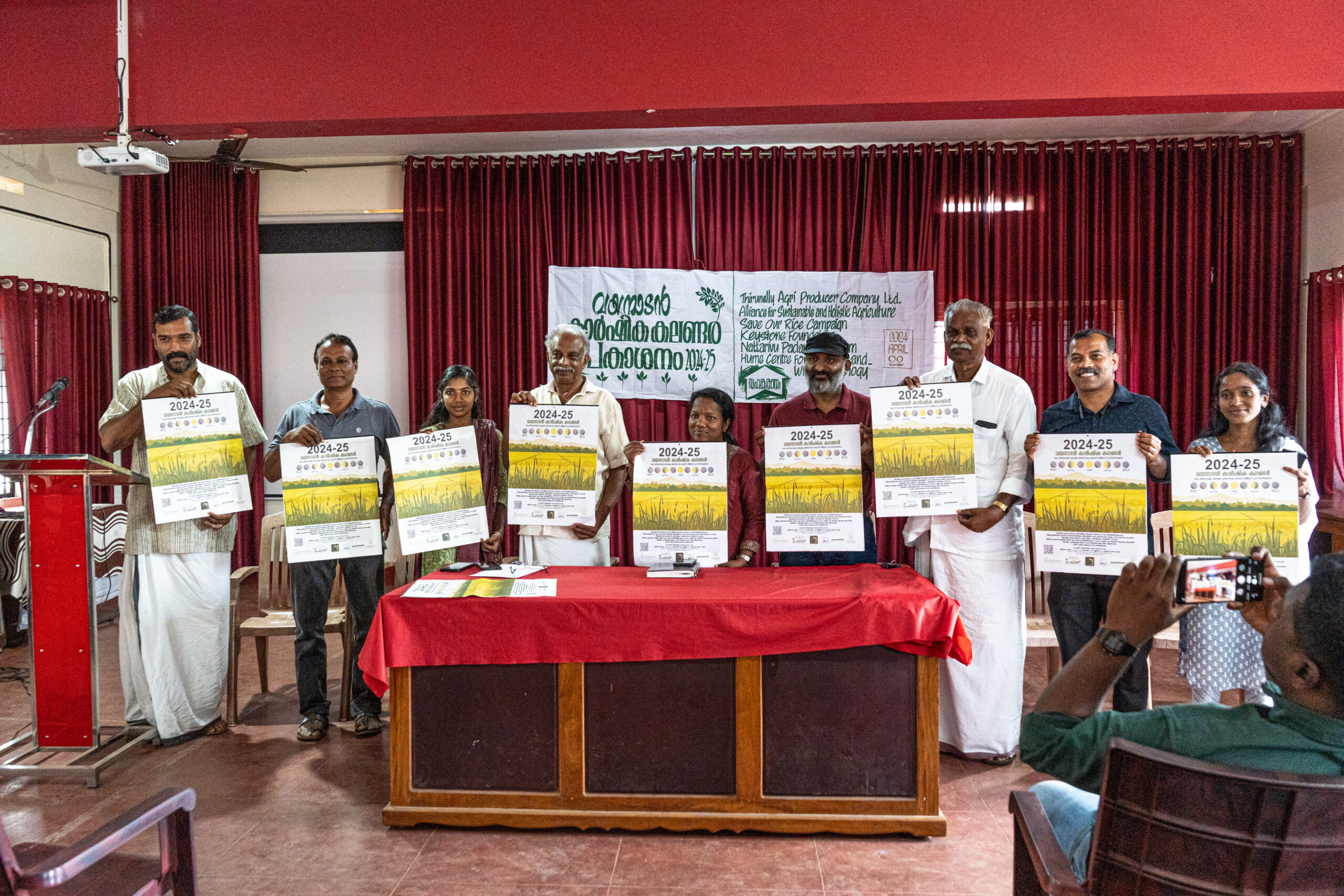The Covid-19 pandemic caught us unawares two years ago. In the mayhem that followed, many lives were lost and many more suffered in their efforts to get medical care and to survive the infection. Indigenous communities living close to the forests where, in most cases, medical care was not easily accessible, had a tough time surviving the pandemic. They also had difficulty accessing food and other essentials to keep them healthy and safe from infection.
With Balwadis and schools closed for a long duration, the already undernourished children, women, and the elderly in these communities were pushed further into nutritional vulnerability and health concerns, making them more susceptible to the pandemic. The non-availability of wage work, the only livelihood option for many of them, added to the woes.
We, at Keystone Foundation, stepped up our efforts to help the tribal and non-tribal populations in the NBR. Our team, with the help of our field staff and community health workers, raised funds, procured and distributed many essential items for direct distribution to the vulnerable households in five districts—Nilgiri, Coimbatore, Erode, Nilambur and Wayanad. Urgent medical supplies were given to the respective district administration on a need basis.
We distributed nutritional kits with essential food grains to families, food materials to community kitchens, immunity-boosting tablets to sanitation workers on the ground, relief packages to households of COVID patients and to those who lost employment and medical kits to community health workers, sanitary workers and local primary health centres. Apart from these, we also distributed safety gear (gumboots, gloves, and face masks) to 100 sanitary workers in the Kotagiri town panchayat with support from the HCL Foundation.
With timely and concerted efforts, Keystone Foundation was able to help 11,577 households with food provision kits, 768 Covid-affected families with nutrition kits and 450 sanitary workers with safety and immunity booster kits.

